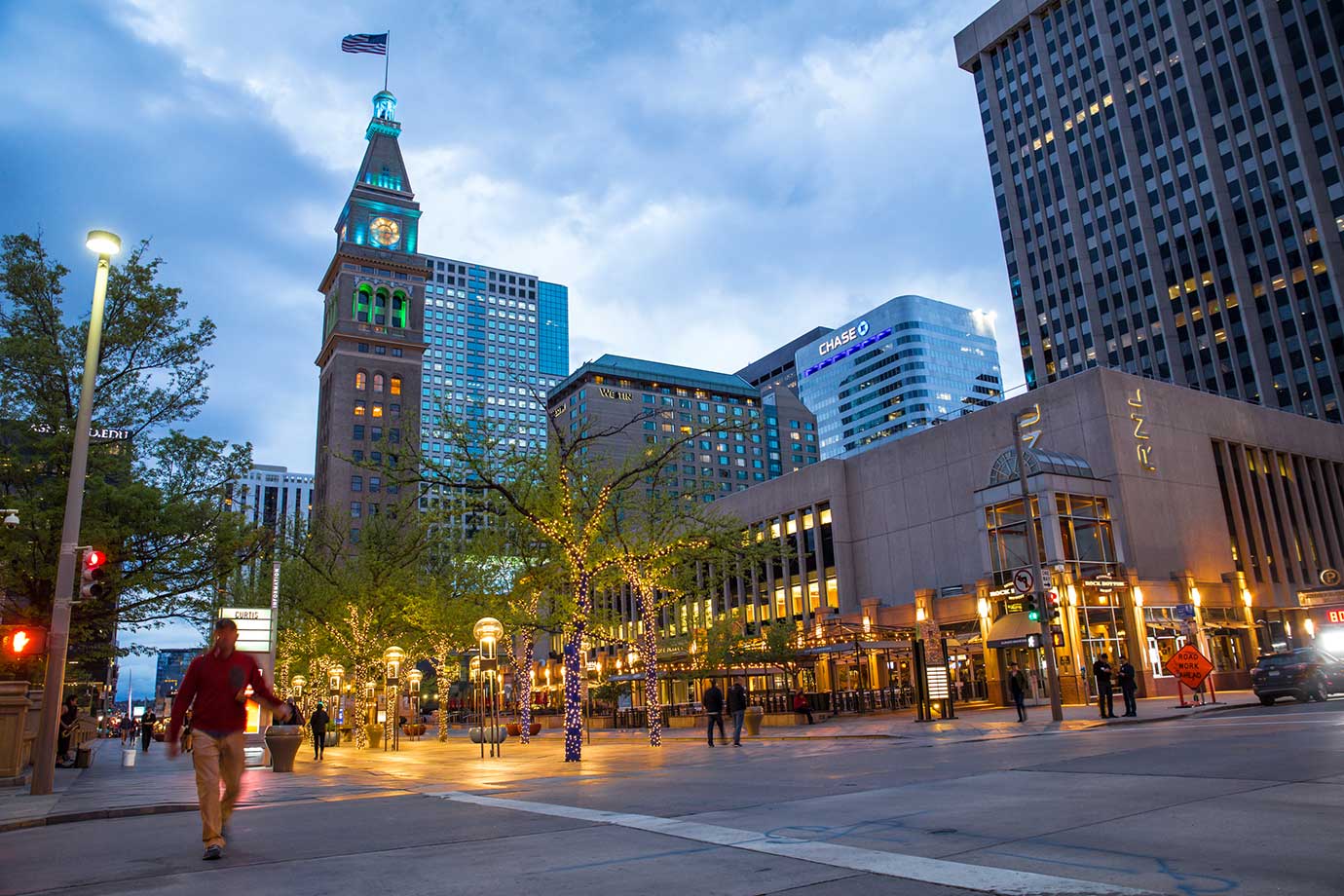
On Denver’s 16th Street Mall, not everyone has benefited from an economic boom. Photo by littleny via iStock.
On Denver’s 16th Street Mall, not everyone has benefited from an economic boom. Photo by littleny via iStock.
There’s a reason people are coming to Colorado, and it’s not just the marijuana and the mountains. The unemployment rate in 2016 sank to 3.3 percent, and we rank among the top 10 states for job growth. Nearly 305,700 jobs have been added since 2007.
But the rising tide hasn’t lifted all boats. A recent report by the Colorado Center on Law & Policy (CCLP) scratches under the surface of those numbers to find festering inequalities that threaten the sustainability of the boom and hurt the health of many of us. (CCLP is a grantee of The Colorado Trust.)
The income gains in our state have gone—if not exclusively, then heavily—to those at the top of the pay scale, according to the CCLP report. The wealthiest 20 percent of Coloradans took home half of the personal income in 2016. The richest 5 percent got a fifth of the total pay.
For most people, wages are slightly less than they were in 2007, after adjusting for inflation. The cost of everything—housing, child care, health care—has made it hard for many to see the economic boom as an improvement.
A growing share of jobs pay less than what it costs to pay for basic necessities—or what CCLP calls self-sufficiency wages. In 2001, fewer than one in 10 jobs paid less than self-sufficiency wages; by 2016, it was more than one in five.
What’s more, Coloradans’ race, gender and geography have impacted how they’ve experienced the past decade and the last year:
Do Coloradans feel better off now than they were a decade ago? I did a very small, very unscientific survey on the 16th Street Mall in downtown Denver.
Some of the people I spoke with are optimistic. It was the day before graduation for Joanne, 23, and Cathy, 22. They studied biology at University of Colorado Denver. Joanne wants to become a nurse, and Cathy is planning on graduate studies in marine microbiology in Washington state, California or Japan.
“It seems uncertain,” says Cathy. “But we have a plan.”
For some, the city’s skyrocketing cost of living has made it hard to keep up, even as the recession of nearly a decade ago fades into the distant past.
Mick is 61 and works as a financial advisor. A decade ago, he was unemployed, so he’s better off today. But his pay hasn’t kept up with his expenses. He sees it most of all in the cost of feeding his family.
It’s not just that his two boys have grown into hungry teenagers, he says. “Everything costs a lot more.”
There are others who feel left behind completely.
John flies a sign on the 16th Street Mall: “Vietnam vet, needs help, thank you.” A decade ago, he was married and had a job as an ironworker, building skyscrapers. He lived in an apartment on Park Avenue in Denver.
“That fell to shit, and here I am,” he says.
At 67, he’s too old to do the kind of work he was doing before. He’s constantly fighting the government for the combat pay he says he’s owed. He gets disability and Social Security, but it’s not enough to pay rent anywhere. He lives at a shelter, which he calls “nasty.” Last week, his phone was stolen.
For Willie, 36, there are good things and bad in all the changes around here, economic and otherwise. He’s lived in the Denver area all his life; 10 years ago, he was living in the Northfield area, and now he’s in Aurora. It’s harder to pay for things than it used to be, and harder to live with a disability; Willie has been in a wheelchair all his life.
“In 2007, it was decent. I was able to work and maintain a home,” he says. “Now that things have changed, it’s a lot harder. You have to stretch what you have.”
Then again, he says, the crime rate is down, and that’s a good thing. And while he’s unemployed at the moment, Willie’s excited about a program he’s about to start, studying criminal investigation.
“What I wish they would do better at was having more programs for the homeless and for the youth, and focus on what’s most important in Colorado,” says Willie. “I see so many homeless people, and I think, where is all that Colorado money going to?”